Panel 1: The Diversity of Plants and Animals in the Volcanic Plains
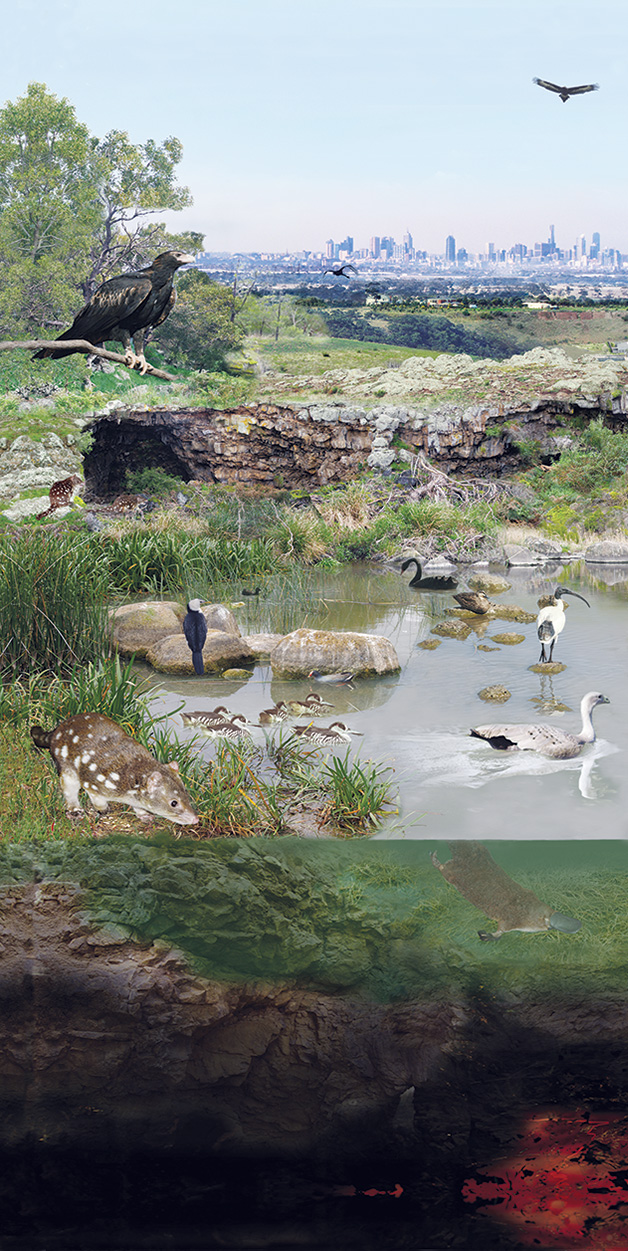
Wildflower grasslands are one of the world’s most endangered ecosystems. These grasslands stretch from Melbourne, across most of southern Victoria to the South Australian border. Since European settlement much of the landscape has been altered, while some of the plants and animals have been driven to extinction. Many people and organisations are making efforts to conserve and protect these species.
On-site Programs
Panel 2: The Formation of the Volcanic Plains

The Volcanic Plains are mainly basalt rock and basalt clay soils, produced by volcanic lava flows and ash, between five million and ten thousand years ago. The plains consist of grasslands, open woodlands, stony rises, volcanic cones, and many lakes and wetlands.
On-site Programs
Field Trips
Panel 3: The Impact of the European Rabbits in Australian Ecosystems
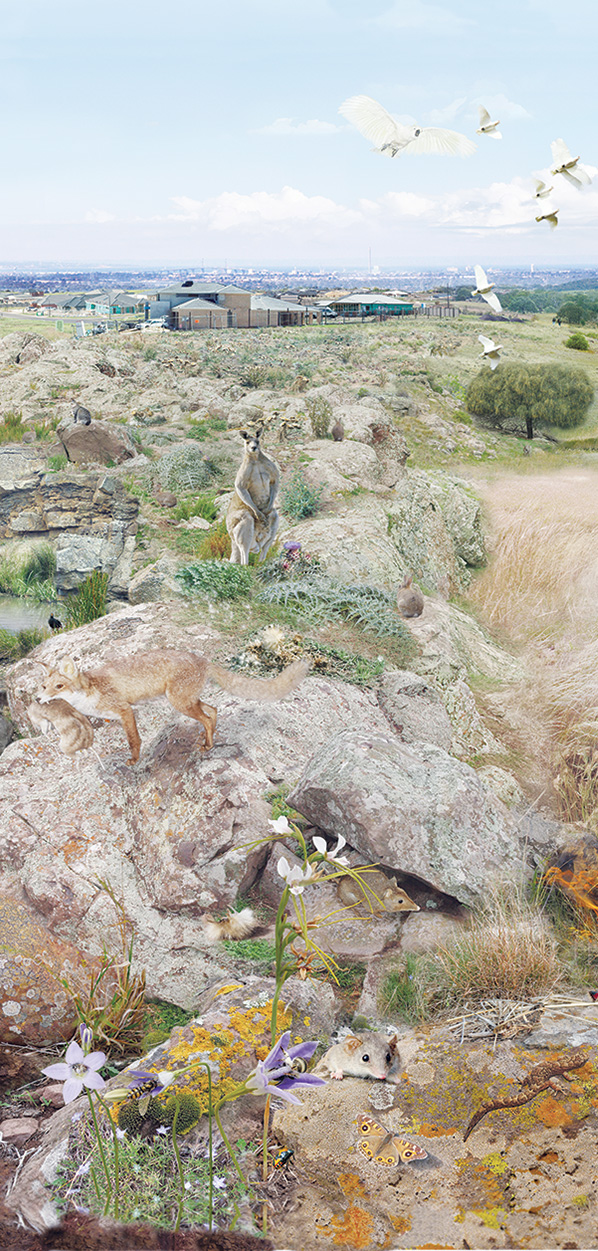
When Europeans first settled in Australia they introduced sheep, cattle, horses and crops. In 1856, near Geelong, a few rabbits were released and bred into millions in a few years. These additions were devastating to native plants and animals. Rabbits alter the structure of native plants and contribute to erosion. Myxomatosis and other controls have been introduced with little effect, and as a result rabbits continue to be one of the biggest threats to conservation of native grasslands.
On-site Programs
-
No On-Site related programs available
Field Trips
Rabbit Scan Video
Panel 4: Soil Testing and Soil Properties
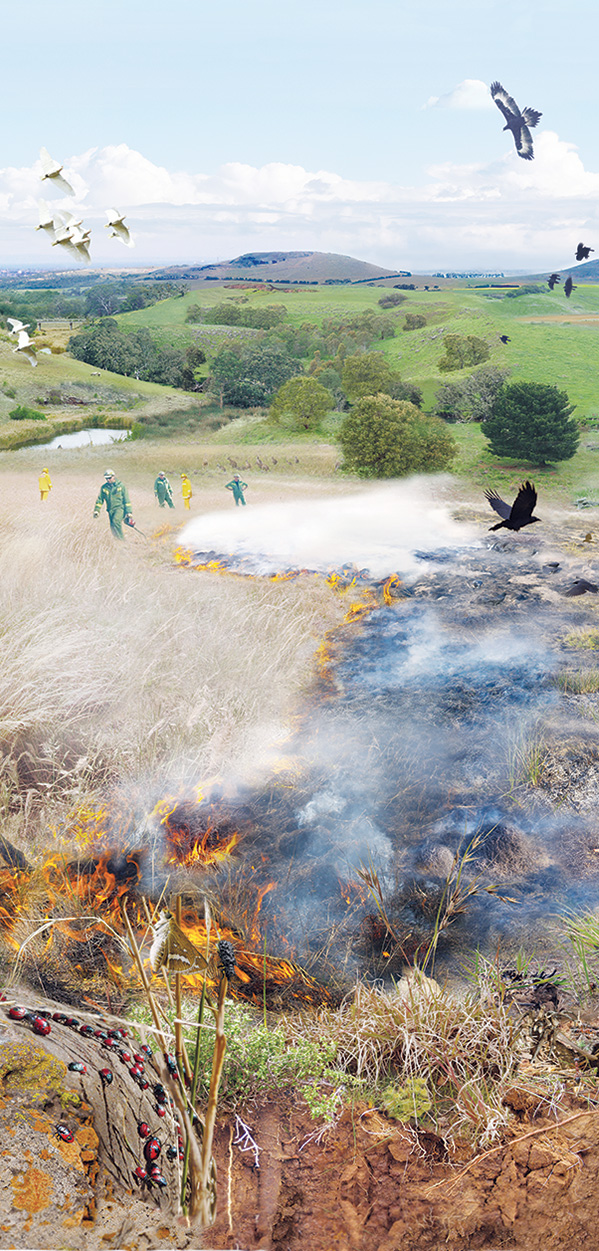
The most dominant feature of the Western Volcanic Plains were the extensive wildflower grasslands, such as Kangaroo Grass, poa tussocks, Wallaby Grasses and Spear Grass. These grasslands were found on spongy soils. Soft footed marsupials, such as bandicoots constantly turned over the soil and spread the soil organisms around, creating this soil. Today, the soil has been compressed by hard hooved animals, such as cattle which were introduced by Europeans.
Panel 5: The Impact of Sheep and Other Introduced Animals on The Environment
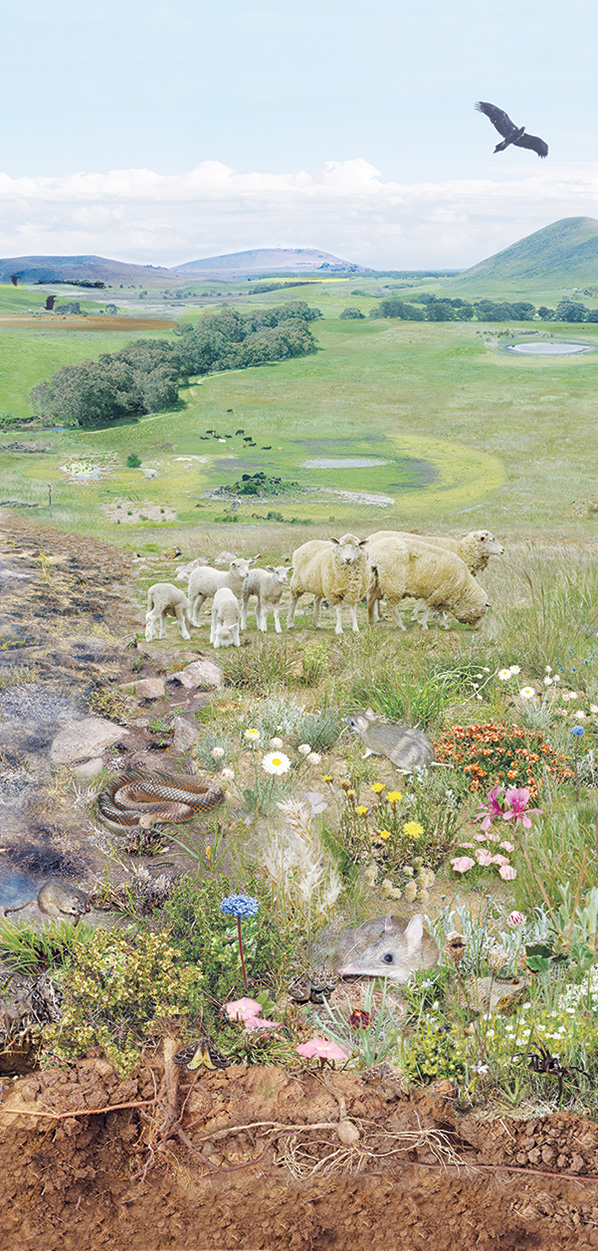
The introduction of sheep in Victoria in the 1830s, was the single biggest factor in early degradation of grasslands. By 1851, six million sheep were found on the plains. The hard hooves of the sheep replaced the soft footed mammals, traditional land management techniques used by Aboriginal people were altered and they quickly wiped out native plants like Myrnong (yam daisy).
On-site Programs
-
No On-Site related programs available
Field Trips
-
No Field trips related programs available
Panel 6: The Importance of Dung Beetles in Grassland Ecosystems

Dung beetles play an important role in grassland ecology. They feed and breed in dung. Dung beetles dig holes and tunnels to feed, they their eggs and raise their young. They bring out sub-soil and take the dung down into their tunnels. This prevents the grasslands from bring covered in marsupial dung. Dung beetles are essential nutrient recyclers. When cattle were brought to the plains, the native dung beetles could not keep up with the amount of dung therefore exotic species were introduced.
On-site Programs
Field Trips
- No Field trips available
Panel 7: Identify and Classify Grassland Plants and Animals

Australia has had the biggest number of animal extinctions in the world in the past 200 years, eight of those have been marsupials from the Victorian Volcanic Plains. Changes in habitat and the introduction of sheep, foxes, cats and rabbits have decimated populations of marsupials. The loss of these soft footed animals has impacted on the native flora. Their foraging, digging and excretion patterns have effected the health and existence of the plants.
On-site Programs
- No On-Site related programs available
Field Trips
- No Field trip related programs available
Panel 8: Protecting Local Grasslands
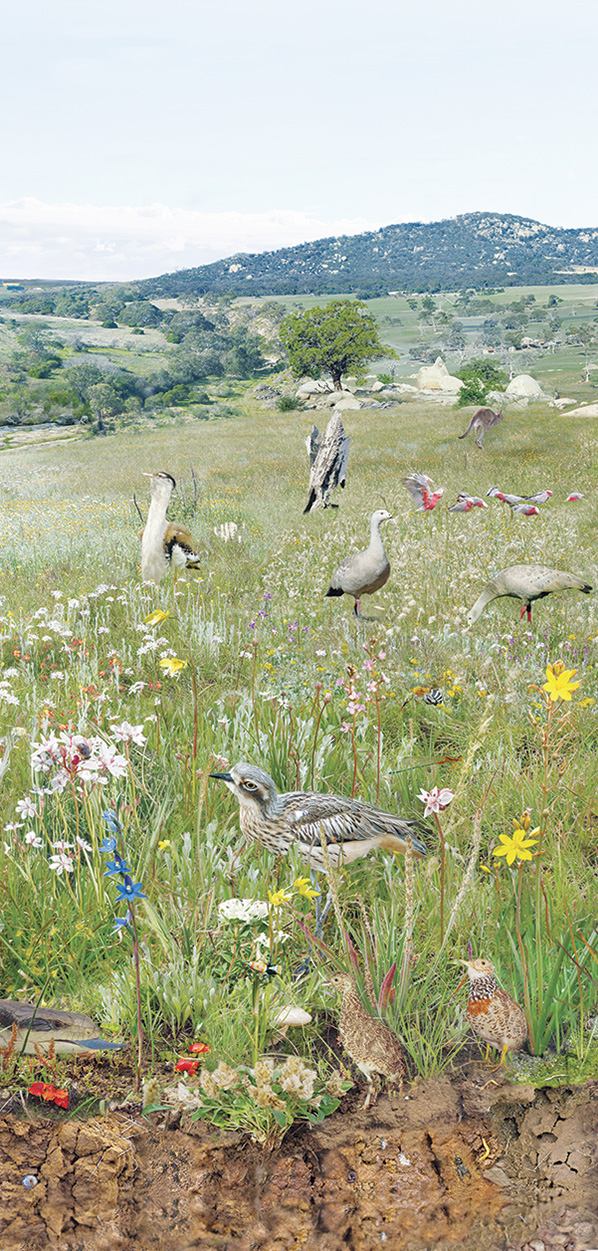
The Flora and Fauna Guarantee Act 1988 was developed to protect and manage threatened native plants and animals. The first action was to save the Golden Moth Orchid. There are many things we can do to conserve what is left of the plains. We could plant native plants in our gardens, join a local friends group or investigate what animals live in your local area.
On-site Programs
- No On-Site related programs available
Field Trips
- No Field Trip related programs available
Panel 9: Plants and Animals at Mt Rothwell
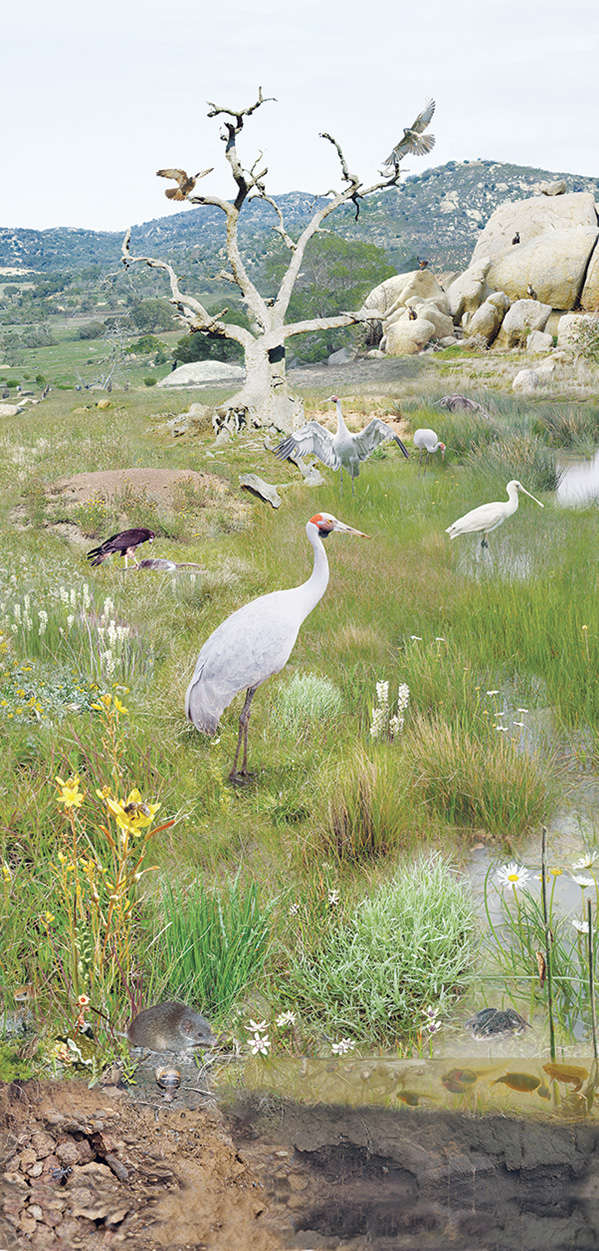
Mount Rothwell Biodiversity Interpretation Centre is a 400 hectare property, with a predator proof fence surrounding the grassland and grassy woodland ecosystems. Here small marsupials, some of which are critically endangered, are plentiful. Management and research is conducted in consultation with government wildlife agencies and research organisations.
On-site Programs
- No On-Site related programs available
Field Trips
- No Field Trip related programs available
Panel 10: Wetlands Through The Seasons
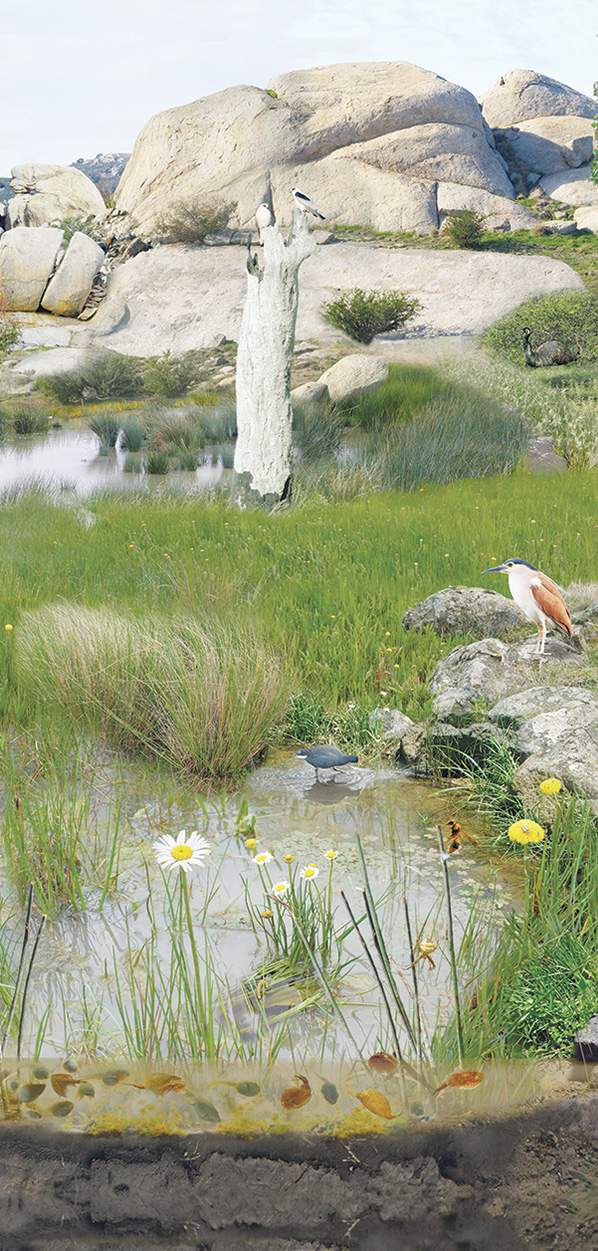
Wetlands in the plains, when full of water, cover up to a sixth of the land area. Wetlands are high in biological diversity, and support a wide variety of native plants and animals, which are adapted to the fluctuating water levels. Due to the variable water levels, shallow wetlands were drained and others made deeper and more permanent. This has altered wetland ecology and reduced habitat for many species. Species have difficultly in travelling from one habitat to another, as the distances are further. As a result, gene pools are isolated and species are threatened.
On-site Programs
Field Trips
-
No Field trips available
Panel 11: Eels and Their Migration Journey
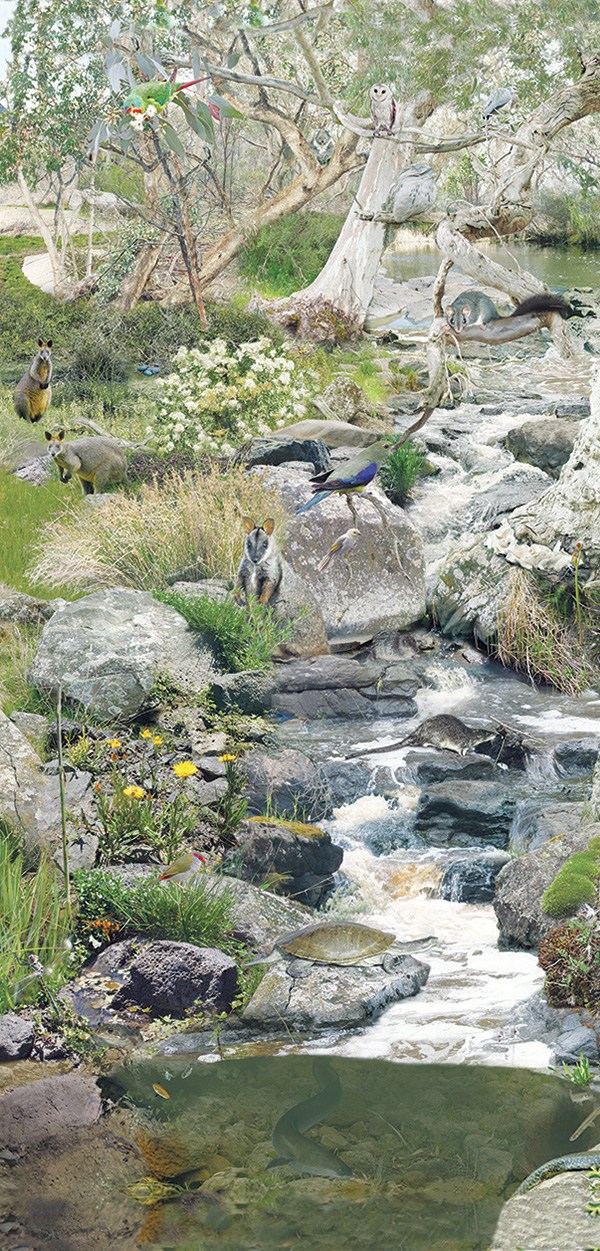
When eels mature they swim out of rivers in Australia, including western Victoria and head along the Australian continental shelf to seas around Queensland and Papua New Guinea, where they breed and die. The young eels take a couple of years to return to the south east coast of Australia. Then, usually in early Autumn they swim up the rivers to fresh water lakes and wetlands. Aboriginal tribes around Lake Condah developed aquaculture systems to capture the eels.
On-site Programs
-
No On-Site related programs available
Field Trips
-
No Field trips available
Eeel Migration
Panel 12: Biodiversity in an Open Woodland
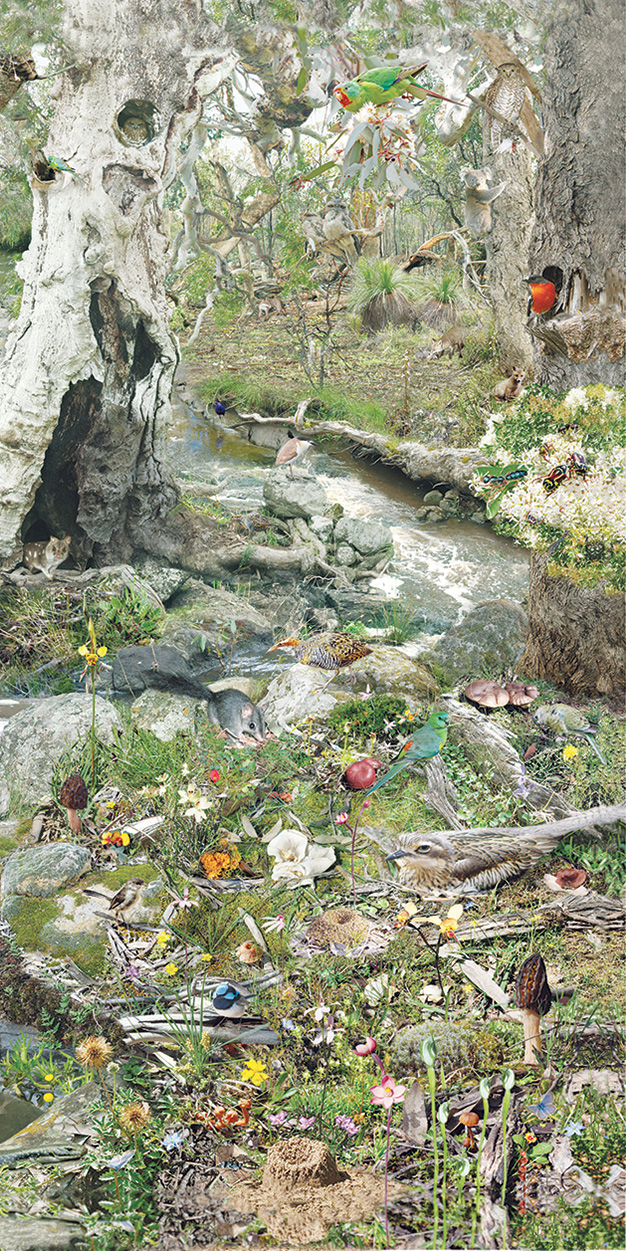
Open woodlands are scattered around the plains, particularly on higher ground and around water. Dominant species include River Red Gums in wetter areas, and Grey Box and Yellow Box in drier areas. In open woodlands, the trees are not overlapping, or very tall, and the understory is made up to grasses and herbs not shrubs. Most of the woodlands have been cleared for agriculture or fire wood. This has caused a decline in habitat for native birds, animals and flightless birds.
On-site Programs
-
No On-Site related programs available
Field Trips
-
No Field Trips related programs available
Extension: 3D grassland and wetland diorama
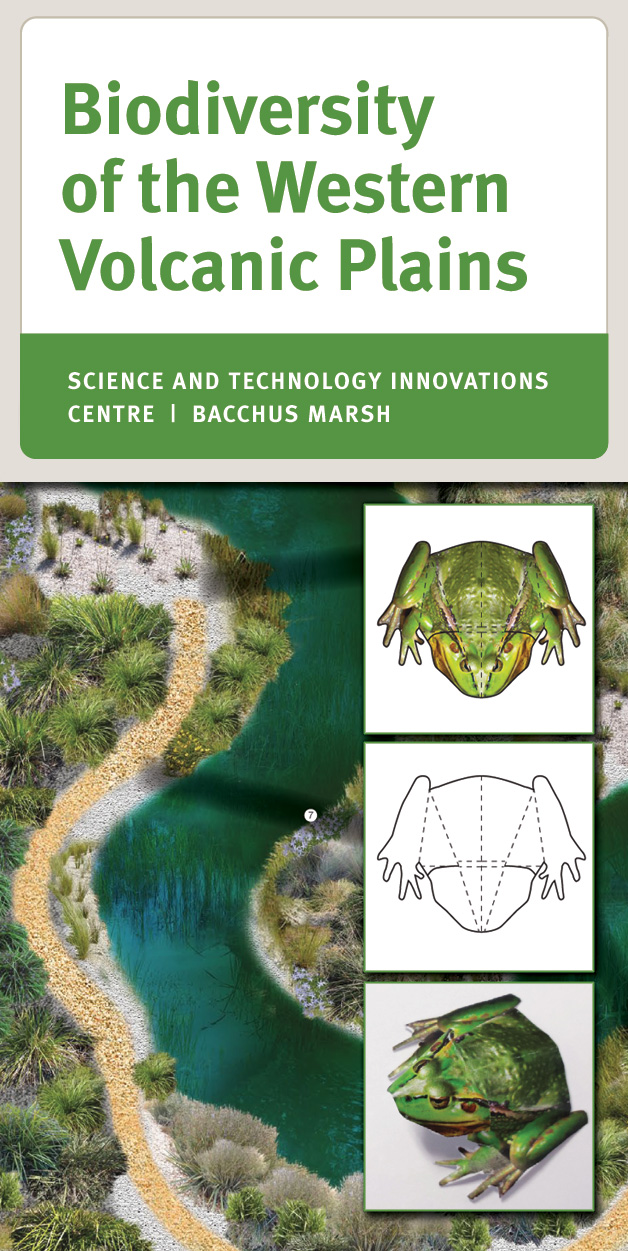
This activity is an extension to the Volcano Dreaming unit of work. Teachers may choose to use this as an assessment task to determine the students' level of understanding about grasslands and wetlands. Students will make a 3D model of a grassland and wetland and place 3D animals and plants in an appropriate location depending on their habitat requirements.
Instructions
Map and Building Cut-outs
Animal Cut-outs
![]() Eastern Barred Bandicoot (PDF)
Eastern Barred Bandicoot (PDF)


